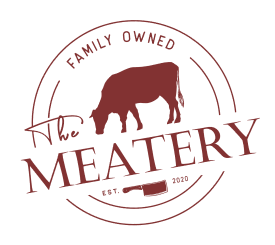In the culinary world, Iberico pork has earned the prestigious nickname "the Wagyu of pork," and for good reason. Like its beef counterpart, Iberico pork represents the pinnacle of its category, offering an unparalleled eating experience that combines exceptional marbling, texture, and flavor complexity.
The comparison to Wagyu beef is particularly apt when considering the unique characteristics that set both meats apart. Just as Wagyu cattle undergo specific breeding and feeding practices to achieve their legendary status, Iberico pigs are the product of centuries of careful breeding and a distinctive lifestyle that contributes to their superior meat quality.
What makes this comparison even more fascinating is the similar way both meats are prized for their intramuscular fat content. In Iberico pork, this manifests as fine streaks of fat that marble throughout the meat, creating a buttery texture and rich flavor profile that's remarkably similar to the experience of eating high-grade Wagyu beef.
However, while the comparison is valid in terms of quality and prestige, Iberico pork maintains its own unique identity. The meat offers distinct nutty undertones and a complex flavor profile that's entirely its own, making it not just a "pork equivalent" of Wagyu, but a premium product that stands proudly on its own merits.
Iberico Pork And Its Origins
Iberico pork originates from the Iberian black pig (Sus scrofa mediterraneus), a unique breed native to the Iberian Peninsula. These distinctive black-hooved pigs have been raised in Spain and Portugal for centuries, with their lineage traced back to prehistoric times.
The true magic of Iberico pork lies in the traditional rearing methods. The most prized variety comes from pigs raised in the dehesa, a unique ecosystem of oak forests found in southwestern Spain and southeastern Portugal. During the montanera season (typically October to February), these pigs roam freely, feeding primarily on acorns (bellotas) from holm and cork oaks.
There are several grades of Iberico pork, with the highest being "100% Iberico de Bellota," which comes from pure-bred black Iberian pigs that have been acorn-finished. Other classifications include "Iberico de Bellota" (at least 50% Iberian breed), "Iberico de Cebo de Campo" (grain-fed with some pasture access), and "Iberico de Cebo" (grain-fed).
The production of Iberico pork is strictly regulated by Spanish law, with specific requirements for breeding, feeding, and aging processes. This careful oversight ensures the maintenance of traditional methods and the exceptional quality that has made Iberico pork world-renowned.
Cultural And Regional Context
Iberico pork holds a special place in Spanish and Portuguese gastronomy, representing centuries of cultural heritage and traditional farming practices. In these regions, the production and consumption of Iberico pork products are deeply woven into the social fabric, with families often passing down their expertise through generations.
The dehesa system, where Iberico pigs are raised, is more than just a farming method – it's a sustainable ecosystem that has been maintained for centuries. This traditional approach to animal husbandry has helped preserve both the natural landscape and the cultural identity of the region.
In Spanish cuisine, Iberico pork products, particularly jamón ibérico, are considered national treasures. They're central to social gatherings, celebrations, and everyday dining. The art of carving jamón is itself a celebrated skill, with professional cortadores (ham carvers) held in high regard.
The cultural significance extends beyond gastronomy into economic and environmental spheres. The Iberico pork industry supports numerous small-scale farmers and producers, while the traditional raising methods help maintain the ecological balance of the dehesa ecosystem.
Does Iberico pork taste different?
Iberico pork offers a distinctly different taste experience compared to conventional pork, characterized by its complex flavor profile and unique texture. The meat has a rich, nutty flavor that's immediately noticeable, accompanied by subtle sweet notes and a buttery finish that lingers on the palate.
The unique taste can be attributed to several factors:
- Diet: The acorn-based diet of Bellota-grade Iberico pigs imparts distinct nutty flavors to the meat
- Fat composition: Higher levels of oleic acid create a more complex, butter-like taste
- Marbling: The extensive intramuscular fat creates a more tender, juicy eating experience
- Exercise: Free-range lifestyle develops more flavorful muscle tissue
The meat also has a darker color than regular pork, and when cooked, it develops a more intense, concentrated flavor. The fat literally melts in your mouth, creating an extraordinary sensory experience that's often described as being closer to beef than traditional pork.
Comparison To Standard Pork
When comparing Iberico pork to standard pork, several key differences become apparent. The most notable distinctions lie in the meat's composition, color, texture, and overall eating quality.
Physical differences include:
- Darker red meat color
- More extensive marbling
- Higher fat content
- Different muscle fiber structure
The fat content in Iberico pork is not only higher but also healthier, containing more oleic acid and omega-3 fatty acids than standard pork. The marbling is more extensive and evenly distributed, similar to high-grade beef.
In terms of cooking, Iberico pork can be served at medium-rare temperatures, unlike standard pork which typically requires more thorough cooking. This versatility opens up new culinary possibilities and serving methods that aren't suitable for conventional pork.
Nutritional Benefits
Despite its rich flavor and high fat content, Iberico pork offers surprising nutritional benefits that set it apart from conventional pork. The unique feeding and raising methods contribute to a healthier nutritional profile.
Key nutritional advantages include:
- High levels of oleic acid (similar to olive oil)
- Rich in vitamin E and antioxidants
- Good source of protein
- Contains beneficial omega-3 fatty acids
- High in minerals including iron and zinc
The acorn-based diet of Bellota-grade Iberico pigs results in meat with a fatty acid composition that's considered heart-healthy. The high oleic acid content, in particular, has been associated with various health benefits, including reduced inflammation and improved cardiovascular health.
What is the secret of Iberico?
The exceptional quality of Iberico pork isn't the result of a single factor but rather a combination of elements that work together to create this premium product. The "secret" lies in the perfect harmony of genetics, diet, lifestyle, and traditional production methods.
Key factors contributing to Iberico's uniqueness:
- Genetics: Pure-bred black Iberian pigs with unique fat-storing abilities
- Diet: The acorn-rich diet during montanera
- Lifestyle: Free-range existence in the dehesa
- Climate: The specific microclimate of the Iberian Peninsula
- Traditional Methods: Centuries-old raising and curing techniques
Perhaps the most crucial element is the symbiotic relationship between the Iberian pig and its environment. The dehesa ecosystem, combined with the pig's natural ability to convert acorns into uniquely marbled meat, creates a product that cannot be replicated elsewhere. This perfect storm of factors results in what many consider the finest pork in the world.










